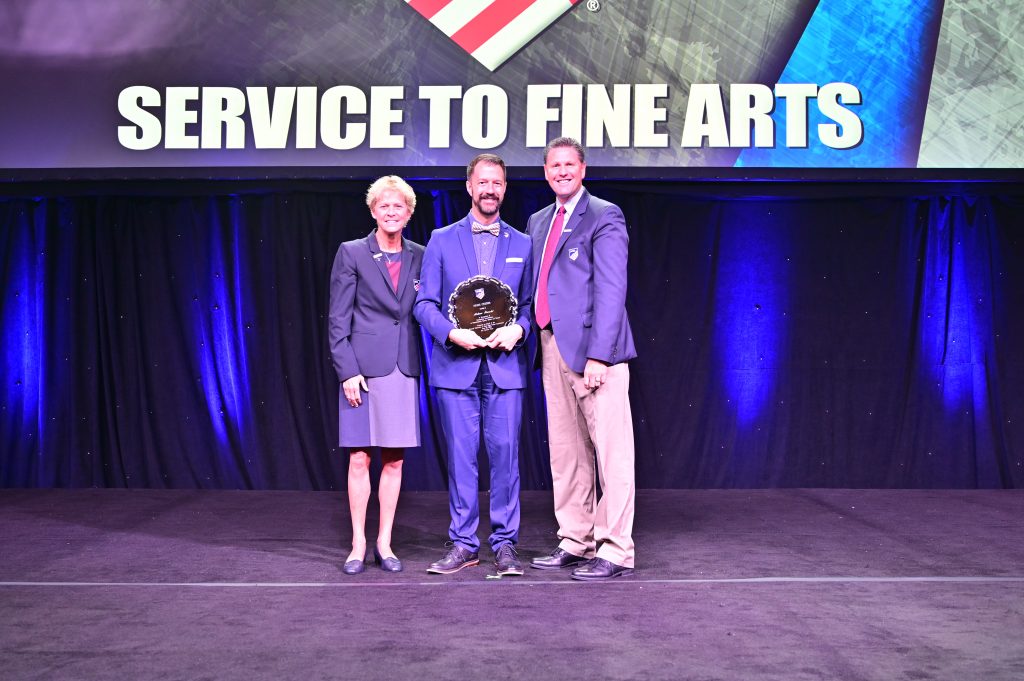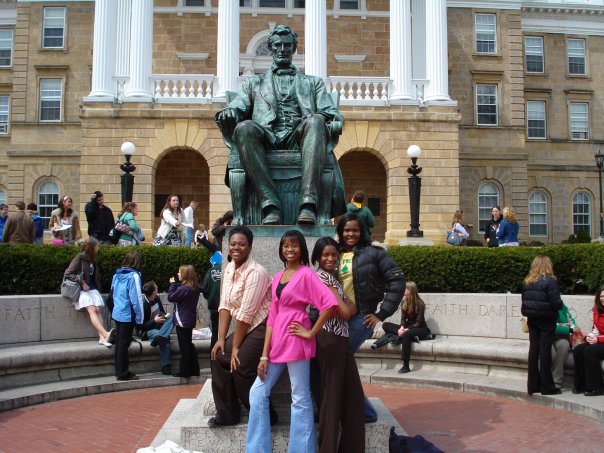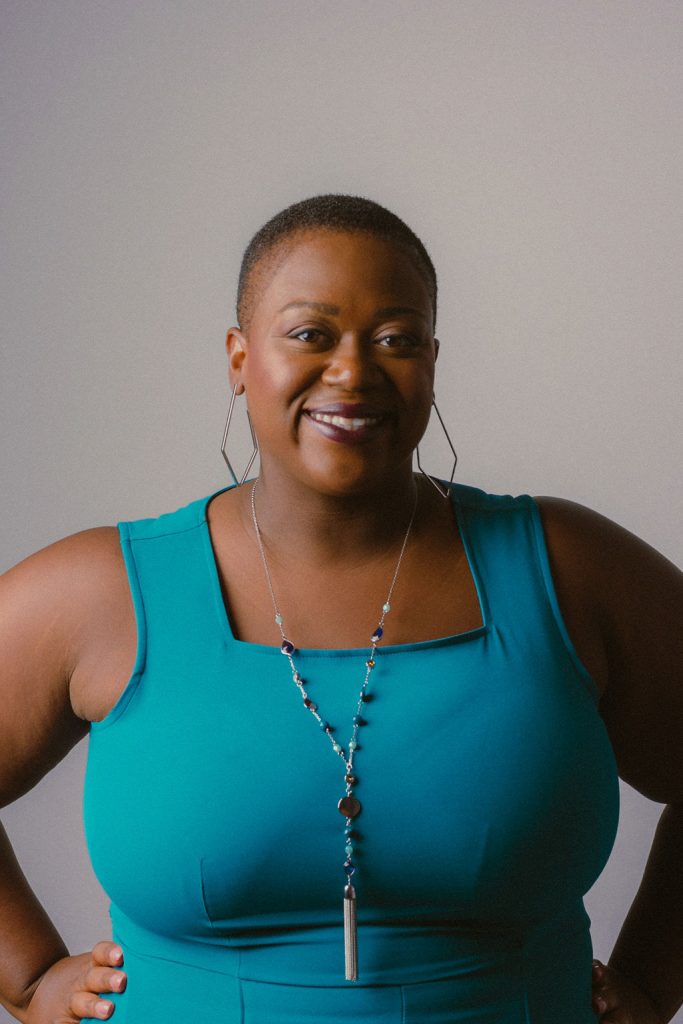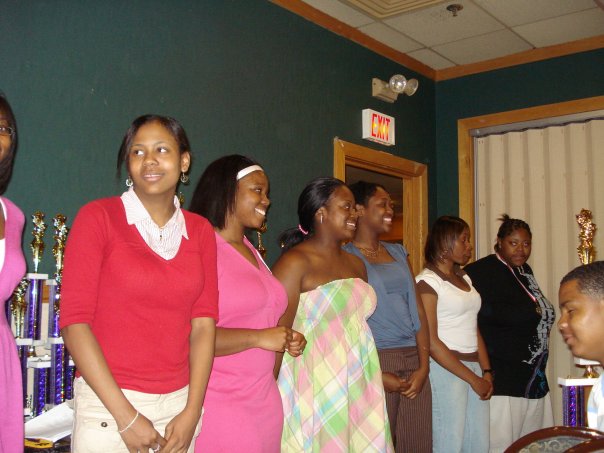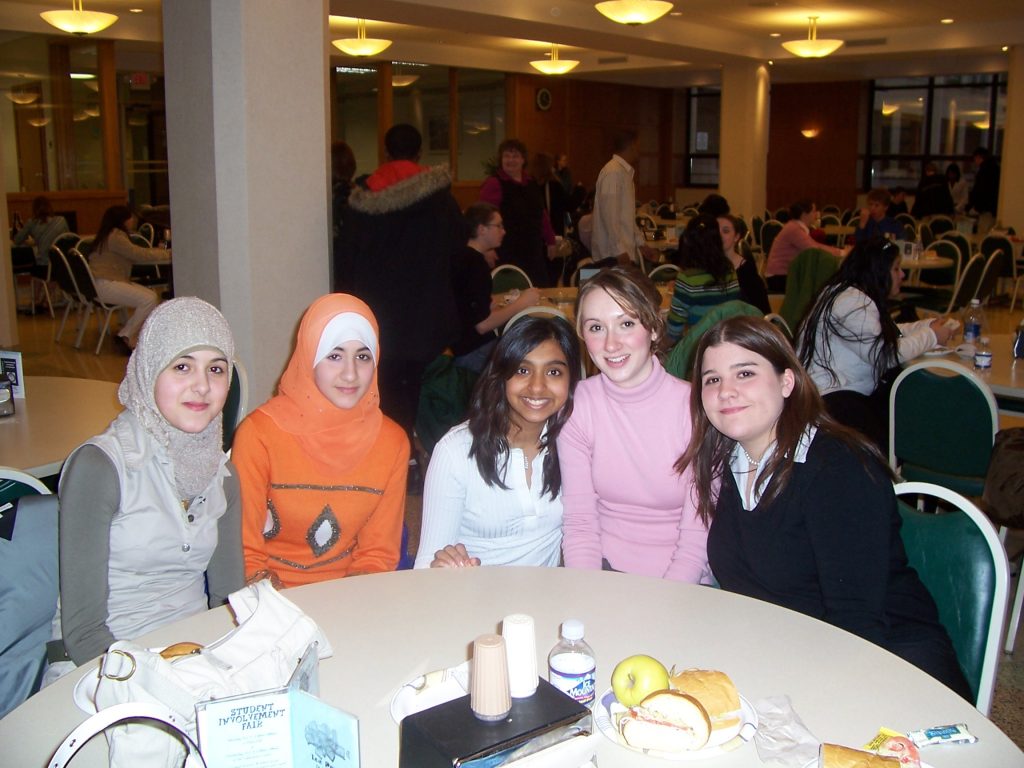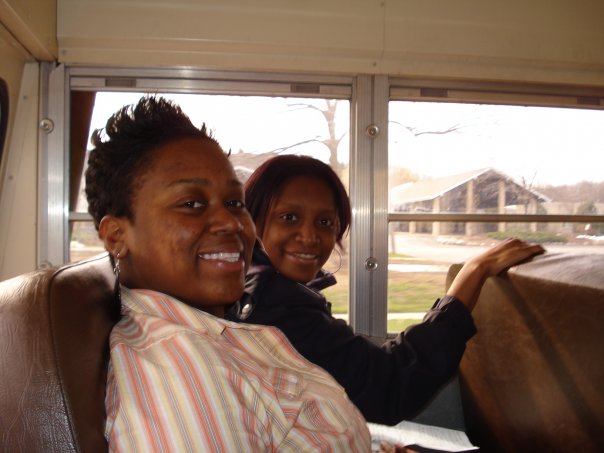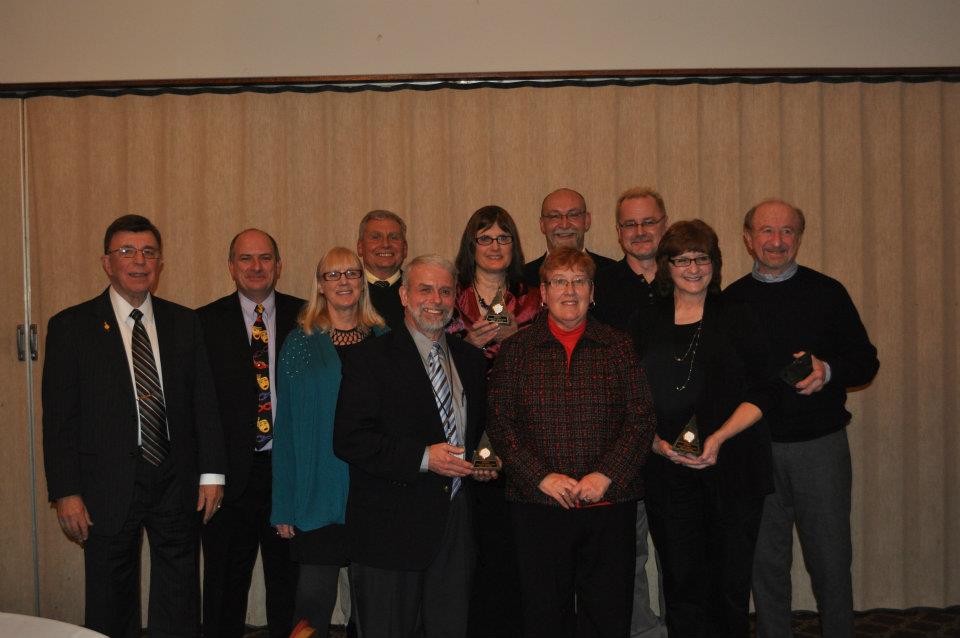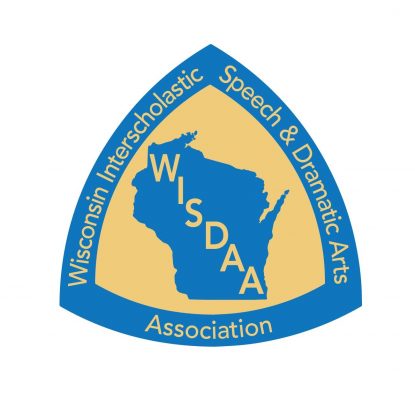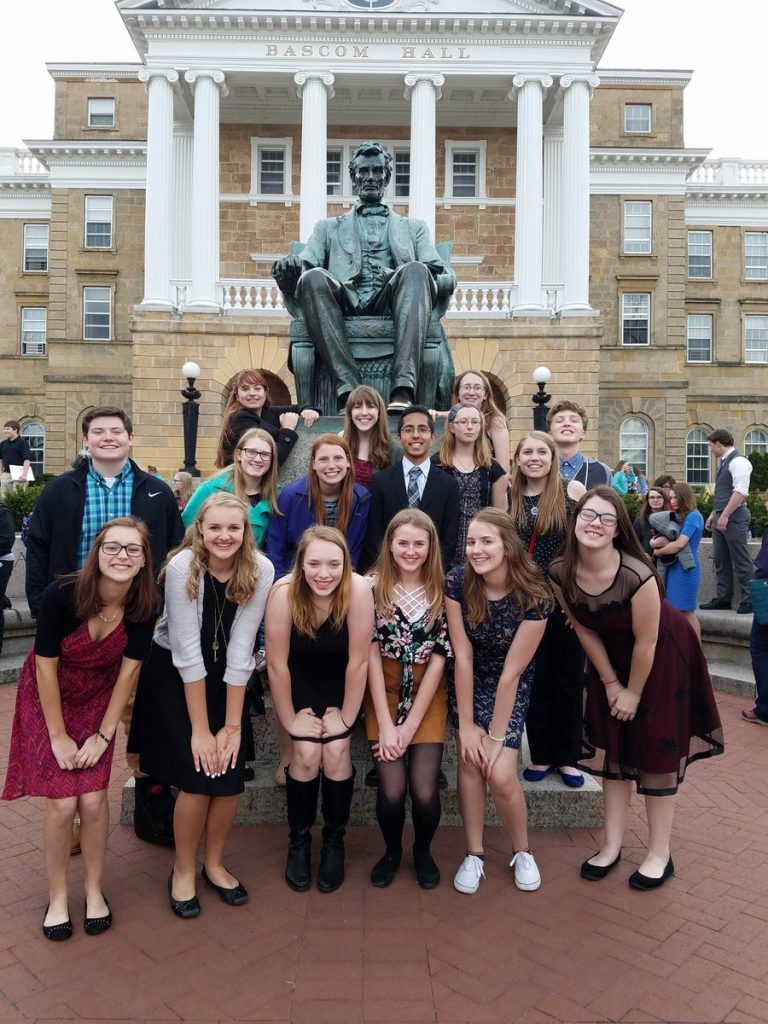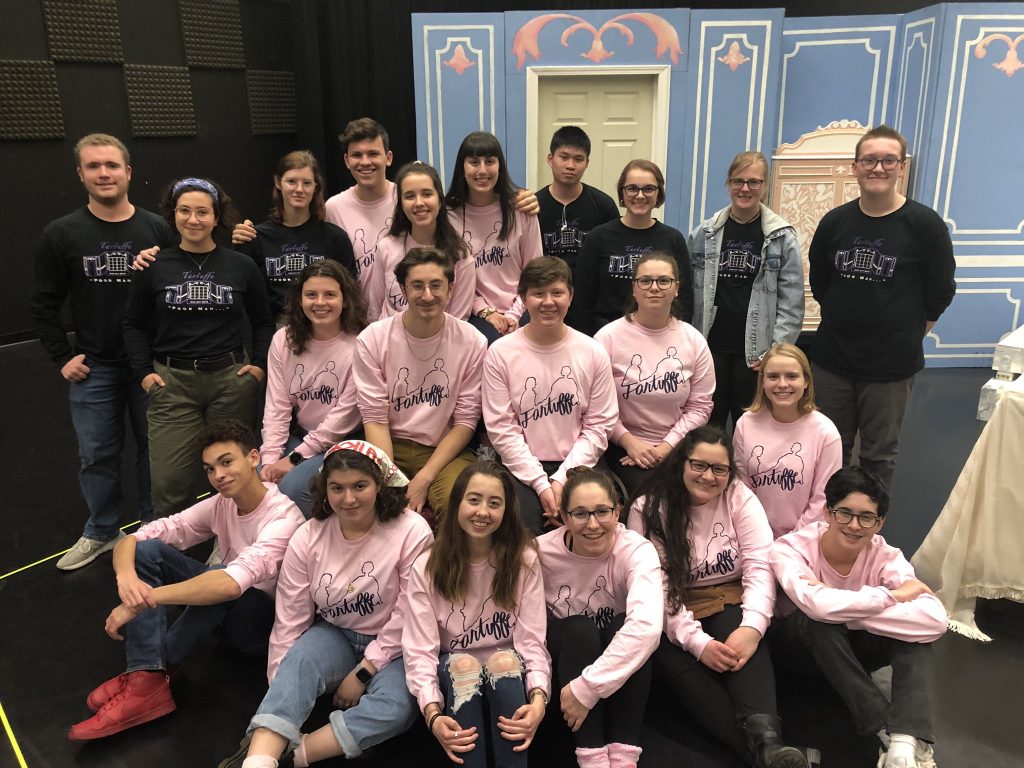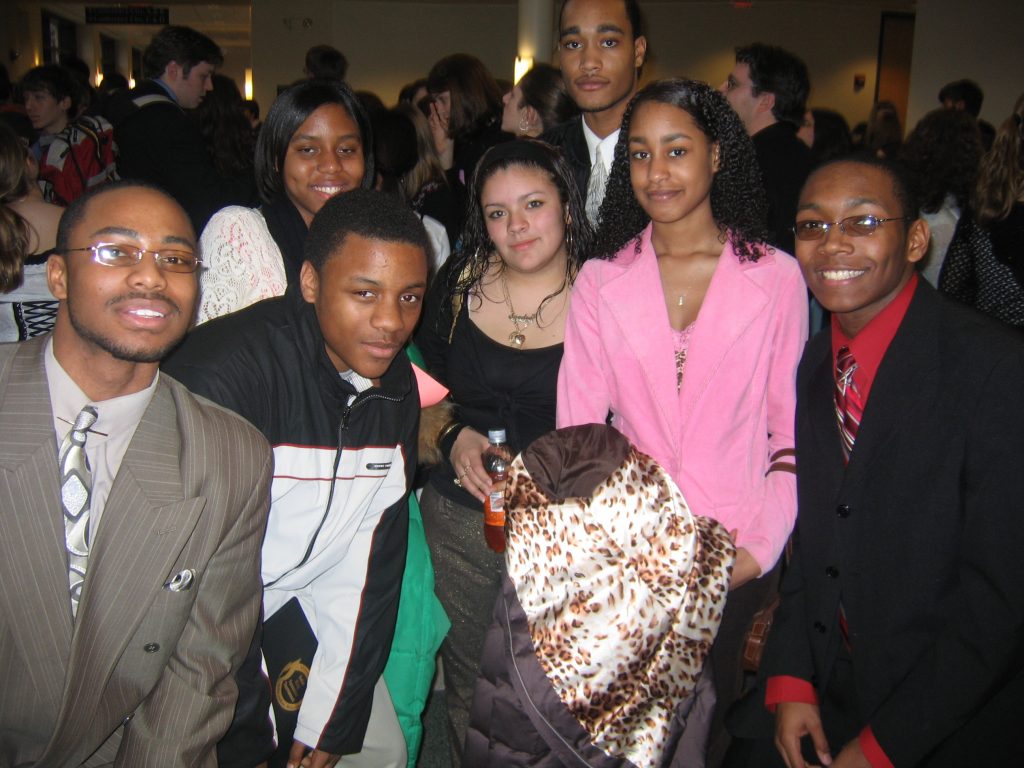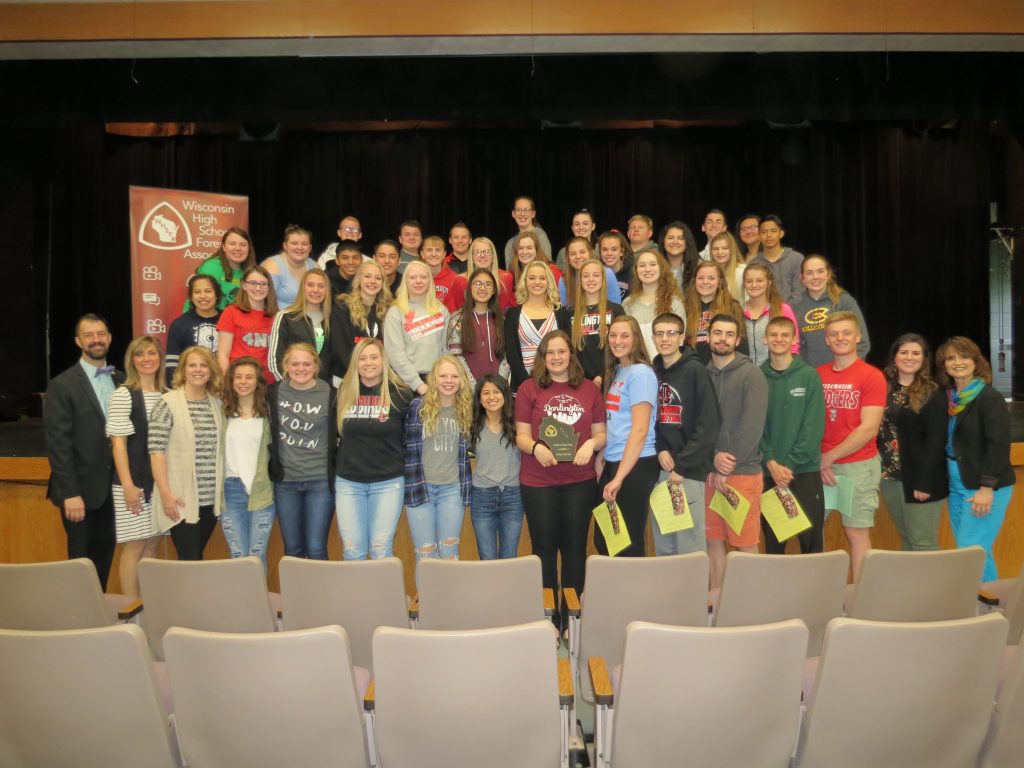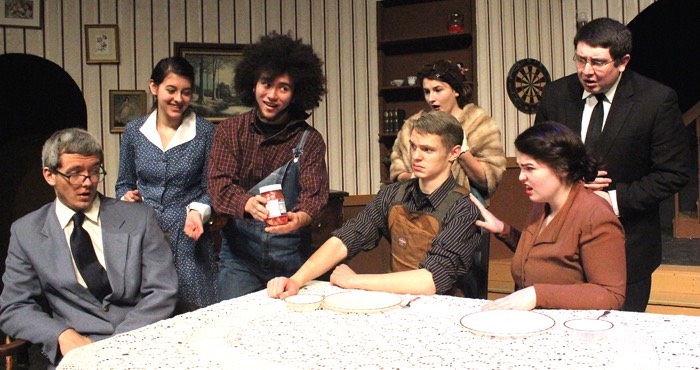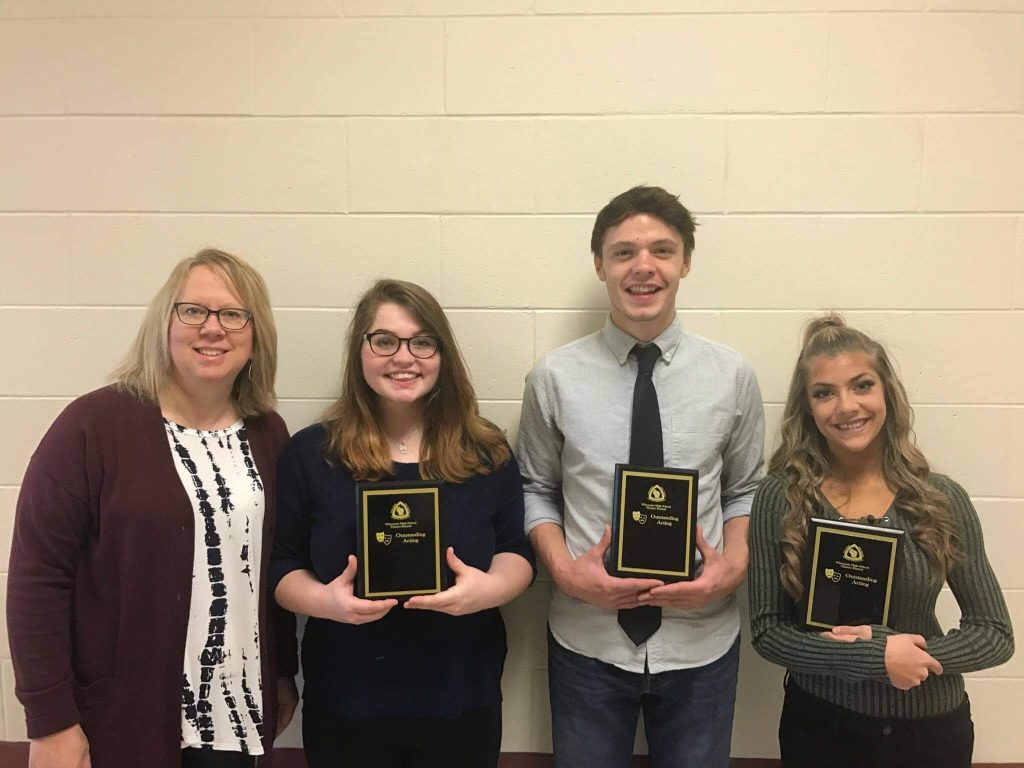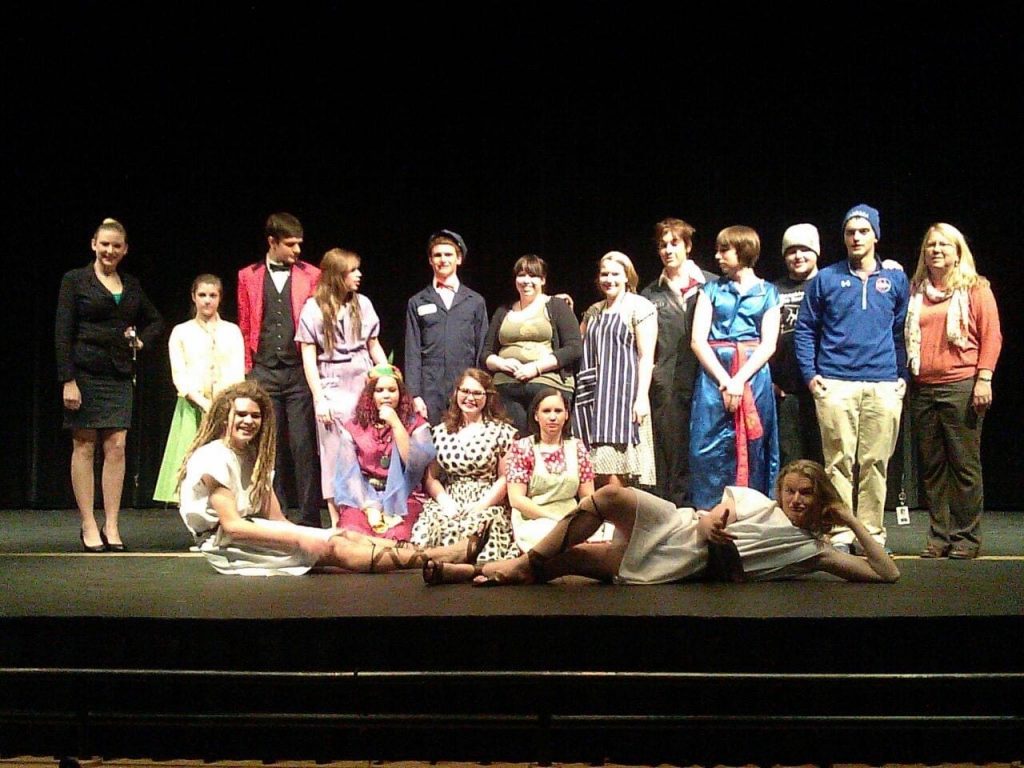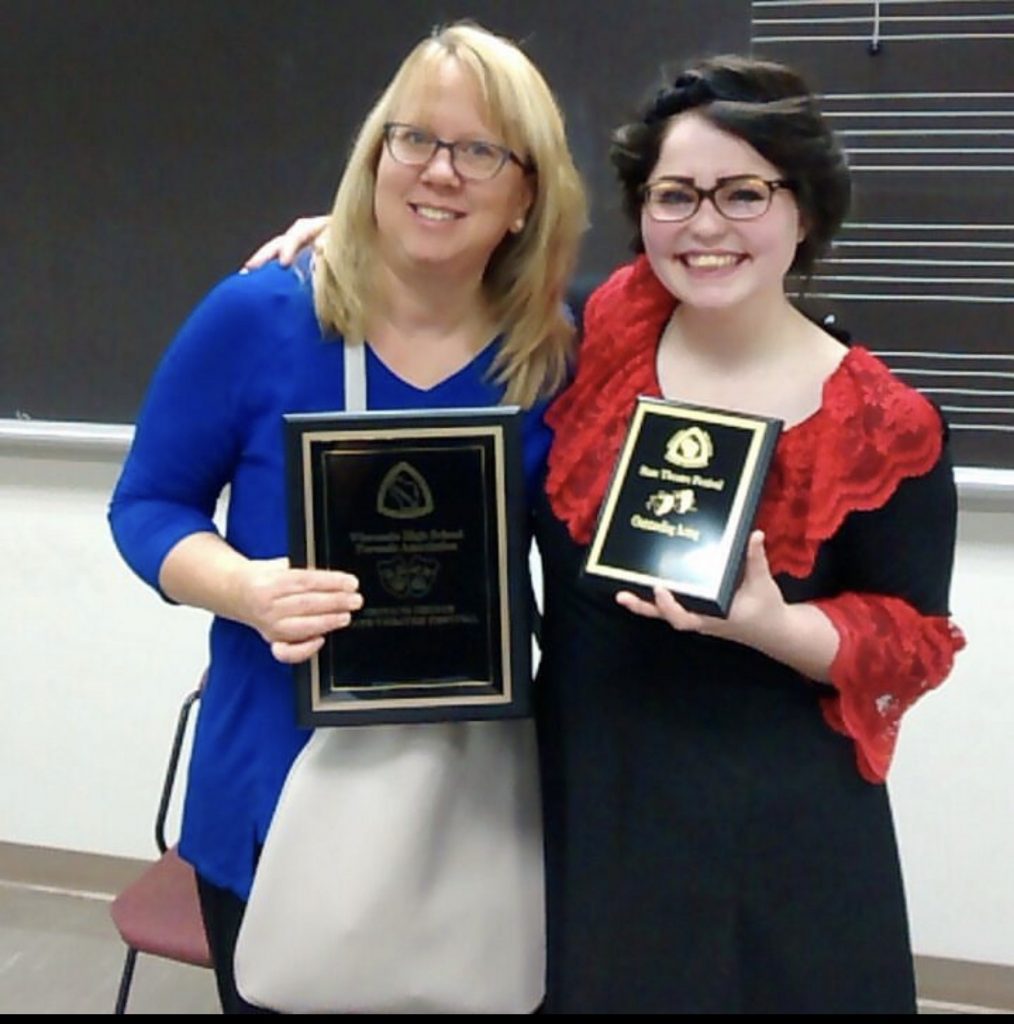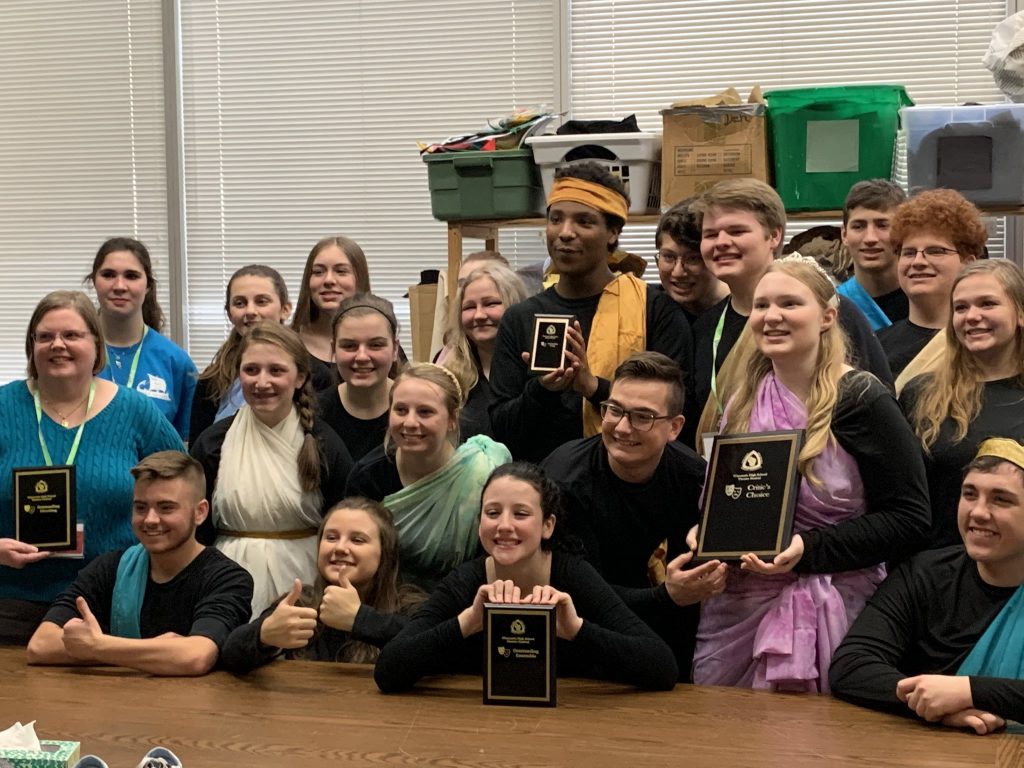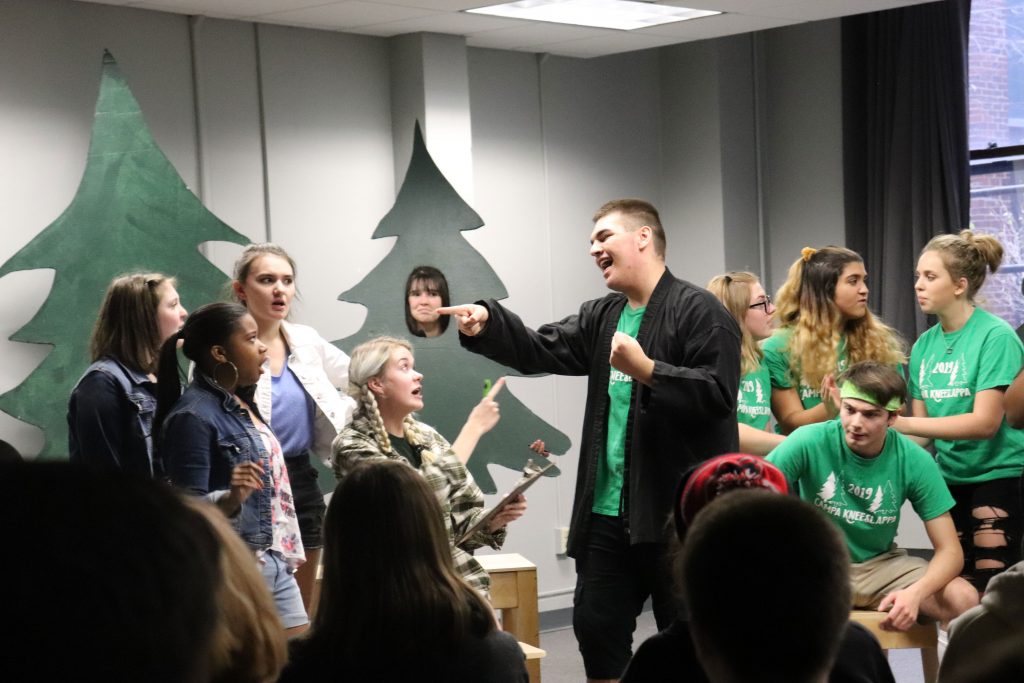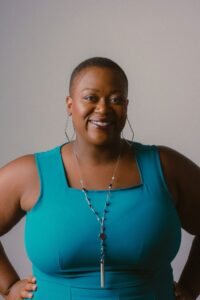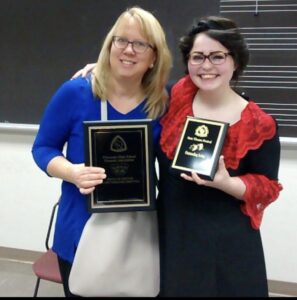Schneider: What changes have you effected at WISDAA?
Jacobi: I believe my legacy will be WISDAA’s technology. In 2015-16, I moved our previously in-person speech training clinics to a hybrid format that included two hours of online asynchronous tutorials about the rules and other expository information to ensure consistency in delivery of that information. This was supplemented by a 2.5-hour in-person practicum workshop focusing exclusively on practicing evaluation. The test for certification went from being a 50-question multiple choice test about the rules to an authentic assessment that entails writing an evaluation of a student performance (on video).
I also partnered with SpeechWire, which has revolutionized how we track participation data, ensure compliance with various legal imperatives, and facilitate virtual participation. Working with Speechwire has allowed us to streamline awards distribution at the State Speech Festival that, with 300+ schools with thousands of students participating across four-time slots, is a feat of engineering!
Schneider: Speaking of technology, you’re also a highly esteemed partner of Ludus! How has this experience been?
Jacobi: Ludus has been an amazing partner! Primarily, Ludus streamlines much of the work that goes into ticketing and marketing for performing arts organizations (and beyond), which allows educators producing public performances to focus on rehearsal and teaching young people. Ludus’ generous state association support of a share of profits from member schools’ sales of tickets (the modest ticketing fee passed along to patrons) has been a great source of “passive income.”
In addition to using technology to streamline our programming and make it more accessible, I’m really proud of adding accessibility requests to our registration processes, about seven years ago. Because our programs are noncompetitive, practically any accommodation or modification needed is honored, because it doesn’t impact others. I have heard countless anecdotes from coaches and adjudicators about how they appreciate how this uplifts students and doesn’t single them out.
Schneider: How did COVID affect WISDAA’s programming?
Jacobi: Pre-COVID, during COVID, or post-COVID? Numbers are in flux. Pre-COVID, we had 2,200+ students from 80+ schools participate in our theatre season; 2,000+ students from 150+ schools participate in middle level speech; and 5,000 students from 350 schools participate in high school speech. Post-COVID, we’ve seen some schools leave, almost exclusively due to staffing changes, yet several new schools have joined or returned after decades of hiatus. Overall, though, student counts across the board are about half pre-COVID numbers.
With all the capacity we built for virtual participation during COVID, offering those options has become a mainstay to ensure flexibility. We’re pleased that the numbers of virtual participants are declining overall, but it also saved contests last year due to weather cancellations and actually gives fully online schools a much better logistical pathway for participation, whereas figuring that out pre-COVID was a challenge.
Schneider: But you already had some of the program online.
Jacobi: COVID certainly played a role (if you’ll excuse the theatre pun) by forcing us to move more workshops online. This has allowed us to have them team-taught, giving far more flexibility to individuals seeking certification.
Since COVID, we have added entirely online courses for one-act play and middle level speech adjudicator certification. I’m optimistic about using virtual platforms to connect interested schools, and we have some initiatives to rebuild debate participation.
Schneider: In a normal year, how many events are in a season? What kind are they?
Jacobi: One-act play season starts in early October with 12 regional district festivals (one split between two sites on opposite ends of the district); those advance to five sectional festivals that, in turn, advance to the State Festival the weekend before Thanksgiving.
The State Festival is not just the one-act play contest, however; we have workshops for students and teachers, a vending expo, full-length showcase play and musical, college auditions, Tech Challenge, and Thespys – it’s a combination of a state activity association one-act play contest, a Thespian festival, and a college-run high school theatre festival (though we allow middle level schools to participate if they wish). Middle level speech starts in January with about 20 regional “Level 1” festivals, followed by about 12 “Level 2” festivals in mid-February through mid-March. High school speech starts in February with 50+ regional sub-district festivals, advancing to 14 district festivals in March, which advance to the State Speech Festival Final Round in April. All of these events have a statewide virtual option at each level (including the State Festival) in which schools may participate, which has expanded accessibility and flexibility, particularly for rural schools.
Our pilot/development activities are currently exclusively virtual. Debate has a series of open contests throughout the year, which culminate with a State Debate Festival alongside the State Speech Festival. Film has a single-submission festival held in late spring.
Schneider: To what degree do competitions and festivals intersect?
Jacobi: When I started coaching in the late 1990s, there were few schools who participated in those organizations that also didn’t do WISDAA. Interestingly, every single NSDA National Champion student from Wisconsin to-date has also participated in WISDAA activities. That also applies to some of the most celebrated Thespian troupes in our state.
As a coach, I was driven for accolades on behalf of my students, which is why I saw the value in participating in both types of contests and associations. We have increased collaboration considerably, but there is room for improvement. In addition to WISDAA offering speech and debate festivals, there is also a coach-operated organization for speech and for debate.
Over time, mostly to streamline coaching and team time commitments, many schools left WISDAA for other associations. This makes it more challenging to run contests and forces more vast geographic regions in some areas, adding more burden in time and transportation. We are seeing this hastened by the current teacher/coach shortage and inflation.

